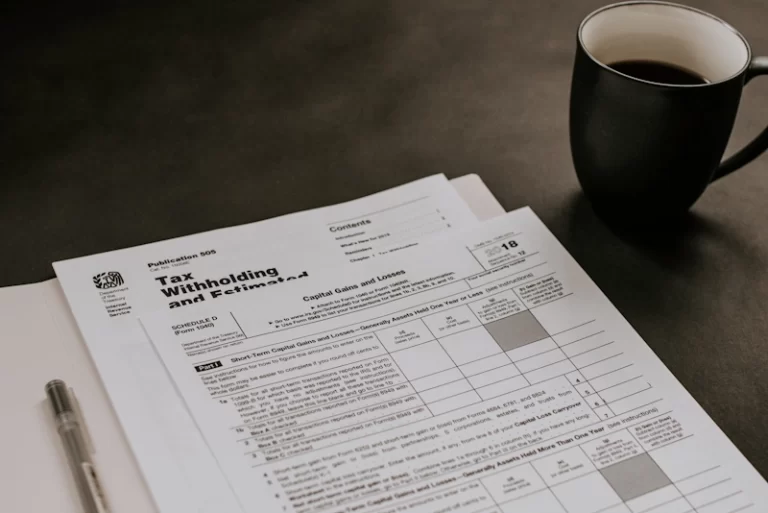Key Highlights
- Singapore is a top financial center thanks to its strong KYC regulations. These rules help keep finances stable and secure.
- The Monetary Authority of Singapore (MAS) works to update the rules for new technologies and risks in finance.
- Different sectors utilize varying digital verification methods – banks may use direct Singpass integration, while Corporate Service Providers (CSPs) typically access government platforms through Corppass.
- Not following KYC rules in Singapore can lead to serious punishments, which may include large fines or jail time.
Introduction
Singapore’s position as a leading financial hub is built on robust regulatory frameworks, with Know Your Customer (KYC) requirements at their core. As your trusted advisors, we want to help you understand why these requirements are not just regulatory obligations, but essential tools for building a sustainable and compliant business in Singapore.
Key Benefits of Strong KYC Compliance:
- Protects your business from financial crimes and reputational risks
- Builds trust with stakeholders and customers
- Enables faster, more efficient customer onboarding through digital solutions
- Helps avoid severe penalties and business disruptions
Understanding Modern KYC Requirements
The landscape of customer verification in Singapore has undergone significant transformation in recent years. While traditional KYC processes relied heavily on face-to-face meetings and physical document verification, today’s digital era has ushered in more sophisticated and efficient solutions, with different approaches for various types of service providers.
This evolution reflects Singapore’s commitment to maintaining its position as a leading financial center while adapting to changing technological capabilities and emerging risks.
Digital Innovation in Customer Verification
Singapore’s introduction of robust digital identity solutions, particularly the Singpass system, marks a significant advancement in KYC processes. This national digital identity program has revolutionized how businesses verify customer identities.
The integration of MyInfo and MyInfo Business with Singpass has created a seamless verification ecosystem that significantly reduces the administrative burden on businesses while enhancing security and compliance.
The integration of MyInfo and MyInfo Business with Singpass has created a seamless verification ecosystem that offers:
- Streamlined customer onboarding processes
- Significant reduction in paperwork and administrative burden
- Enhanced security and compliance measures
- Improved overall customer experience
- Trusted sources for verifying crucial customer and business data
However, the implementation varies significantly depending on the type of service provider:
For Banks and Financial Institutions:
- Direct integration with Singpass for customer verification
- Use of MyInfo for automated data population
- QR code scanning capabilities for customer self-service
For Corporate Service Providers (CSPs):
- Access to government platforms (e.g., ACRA) via Corppass
- Authentication for conducting official transactions on behalf of clients
- Manual verification processes complemented by authorized platform access
- Traditional document collection and verification methods remain important
This differentiated approach ensures that each sector can maintain compliance while operating within their specific business models and regulatory requirements.
Global Standards and Local Implementation
Since joining the Financial Action Task Force (FATF) in 1992, Singapore has consistently aligned its KYC regulations with international standards. This commitment to global best practices has strengthened the country’s position as a trusted financial hub.
The Monetary Authority of Singapore (MAS) plays a pivotal role in adapting these international standards to local context, ensuring that businesses can operate effectively while maintaining robust compliance measures.
This proactive approach includes comprehensive measures for:
- Identifying and understanding money laundering risks
- Implementing robust customer due diligence procedures
- Facilitating international cooperation in investigations
- Adapting to emerging financial crime patterns
The Regulatory Framework
The Monetary Authority of Singapore works in close coordination with other regulatory bodies, including the Accounting and Corporate Regulatory Authority (ACRA), to create and enforce comprehensive KYC regulations. This collaborative approach ensures that businesses receive clear guidance while maintaining the integrity of Singapore’s financial system.
Understanding Compliance Requirements
Our advisory experience has shown that businesses that view KYC compliance as an investment rather than a burden tend to build stronger, more sustainable operations. The regulatory framework established by MAS provides clear guidelines for customer due diligence, ongoing monitoring, and risk assessment. These requirements, while stringent, serve to protect businesses from involvement in financial crimes and maintain Singapore’s reputation as a trusted financial center.
The regulatory framework established by MAS provides clear guidelines for:
- Customer due diligence protocols
- Risk assessment procedures
- Ongoing monitoring requirements
- Data protection and privacy standards
Different types of service providers must adapt these requirements to their specific operational context. For instance, while banks might implement automated Singpass verification systems, Corporate Service Providers typically fulfill their KYC obligations through a combination of traditional documentation methods and authorized access to government platforms via Corppass.
The Impact of Non-Compliance on Businesses
The results of not following KYC regulations in Singapore can be serious for businesses. Besides facing big fines, companies may also suffer from a loss of trust, which makes it hard to win over customers or attract investors and partners.
Also, steps taken by regulators, such as suspending or taking away licenses, can interrupt business and cut future growth chances. Keeping tough KYC rules is not just about following the law; it’s important for creating a reliable and long-lasting business in Singapore.
Case Studies: Penalties and Repercussions for Failing KYC Protocols
The MAS has shown it is serious about enforcing KYC and AML rules. They do this by taking action in well-known cases. These actions show the risks for financial institutions that do not follow the rules. The main issues in these cases often include not checking customers well, failing to report shady transactions, or breaking sanction rules.
| Financial Institution | Penalty | Reason for Penalty |
| Bank A | S$5.2 million fine | Did not properly check the source of wealth for high-risk customers and did not monitor accounts well |
| Payment Service Provider B | License revoked | Helped with transactions linked to illegal gambling and lacked proper KYC checks |
| Remittance Company C | S$1 million fine | Broke anti-money laundering rules, including not reporting suspicious transactions |
These examples show how serious problems can arise from poor KYC compliance. The MAS’s strong actions make it clear that following KYC rules is essential for financial institutions in Singapore.
The Long-term Business Costs of Non-Compliance
Beyond immediate financial penalties, non-compliance can lead to:
- Severe reputational damage
- Loss of business opportunities
- Reduced investor confidence
- Operational disruptions
- Long-term business sustainability challenges
Taking a proactive approach to KYC compliance is not just about avoiding fines. It is about making a strong and responsible business.
Building Effective KYC Processes
Modern technology offers numerous solutions for maintaining strong KYC compliance. Successful implementation of KYC processes requires attention to several critical components. A comprehensive KYC process includes thorough identity verification using trusted documents or official digital platforms, careful risk assessment procedures, and robust data protection measures. The effectiveness of these processes relies heavily on proper staff training and regular updates to match evolving regulatory requirements.
A comprehensive KYC process must include:
- Thorough identity verification using trusted documents or digital platforms
- Careful risk assessment procedures
- Robust data protection measures
- Regular staff training and updates
- Integration with digital verification solutions
Maintaining Ongoing Compliance
The frequency of KYC data updates varies based on risk levels. High-risk customers require more frequent reviews, typically conducted annually, while standard-risk customers may undergo less frequent periodic reviews. However, significant changes in customer circumstances should always trigger an immediate review regardless of the standard review schedule.
The frequency of KYC reviews should align with customer risk profiles:
- High-risk customers require more frequent reviews, typically annually
- Standard-risk customers undergo periodic reviews based on business relationships
- Significant changes in customer circumstances trigger immediate reviews
Technology Solutions for Enhanced Compliance
Businesses can leverage various tools to ensure adherence to KYC requirements, including automated KYC solutions, biometric verification systems, and data analytics platforms. Integration with government-approved services like MyInfo Business can significantly streamline customer due diligence processes while improving overall compliance effectiveness.
Looking Forward
The future of KYC in Singapore continues to evolve with advancing technology and changing regulatory requirements. Businesses that stay proactive in adapting their compliance processes while maintaining strong customer relationships will be best positioned for sustainable growth in Singapore’s dynamic market.
Frequently Asked Questions
A robust KYC process combines thorough identity verification with ongoing monitoring. Your process should include official document verification, digital identity confirmation through platforms like Singpass, regular risk assessments, and proper data protection measures.
Review frequency depends on your customer’s risk profile, with high-risk customers requiring more frequent reviews. However, any significant change in customer circumstances should trigger an immediate review regardless of the standard schedule.
Modern solutions include automated KYC platforms, biometric verification systems, data analytics tools, and integration with government-approved services like MyInfo Business. These tools can significantly streamline your compliance processes while maintaining high security standards.
While banks typically integrate directly with Singpass for customer verification, Corporate Service Providers (CSPs) generally use Corppass to access government platforms for official transactions. CSPs often combine traditional documentation methods with authorized platform access to fulfill their KYC obligations effectively.
Expert Guidance
Our team of compliance advisors specializes in helping businesses navigate Singapore’s KYC requirements effectively. Whether you’re establishing new procedures or enhancing existing ones, our expertise can help ensure your business meets regulatory requirements while maintaining operational efficiency.
The key to successful KYC compliance lies in understanding that these requirements serve not just as regulatory obligations but as fundamental tools for building a strong, trusted business in Singapore’s sophisticated financial landscape.
For specific guidance on implementing or improving your KYC processes, our advisory team stands ready to help you navigate these requirements and build a stronger, more compliant business.





